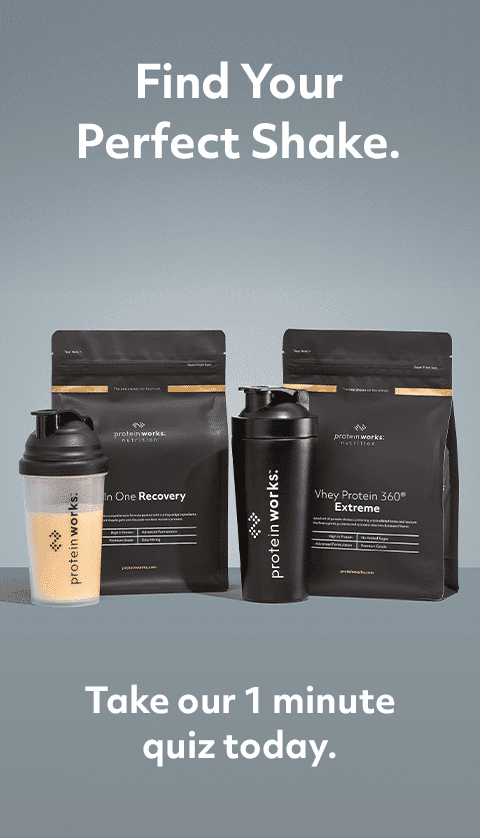Muscle & Gainer Shakes
(8)At Protein Works, we offer a range of products designed to help you build and maintain muscle mas...
At Protein Works, we offer a range of products designed to help you build and maintain muscle mass, while staying on track with your goals. These products are crafted to fuel your body, support recovery, and enhance performance. At the forefront is our collection of high-protein shakes, including our Mass Gainer and Total Mass shakes, as well as our All In One Recovery shake. Additionally, we offer a range of creatine powders, which are a must-have for improving strength, increasing power, and supporting lean muscle development. Whatever your lean muscle goals, Protein Works is here to provide the tools and support you need to achieve them.
If you are struggling to find the perfect product to fit your needs, we'd be happy to recommend the perfect product for you with our one-minute quiz.
- Muscle & Gainer Shakes
Total Mass Matrix Extreme
(486)"Absolute beast of a mass gainer! If you are looking to seriously bulk up then you wont go...Craig
from£36.99£22.19+EXTRA 15% OFF
+EXTRA 15% OFF
Vegan Mass Gainer Extreme
(37)"Really struggled to get my calories in but this Vegan Mass Gainer Extreme made it so much...Neil*
from£39.99£23.99+EXTRA 15% OFF
+EXTRA 15% OFF
100% Protein
(46)"I recently tried 100% Protein shake for the first time and I'm genuinely impressed with how good this tastes for the price!" - Taylor
from£16.99£10.69SUMMER SALE
SUMMER SALE
Total Mass Matrix
(314)"Was recommended this by a mate down the gym as I cant put on mass no matter what I eat. H...James
from£23.99£16.79+EXTRA 15% OFF
+EXTRA 15% OFF
Vegan Mass Gainer
(182)"Solid product - since turning vegan i've been struggling to gain mass. Tastes good, nails m...Ben
from£49.99£29.99+EXTRA 15% OFF
+EXTRA 15% OFF
Whey Protein 360 Extreme
(470)“This is true next gen stuff guys, I’ve not tasted a better protein shake, great job!” Sam
from£36.99£15.69SUMMER SALE
SUMMER SALE
Whey Protein 360®
(838)"Best protein shake I have ever used, tastes amazing. Mixes really well. Definitely a gre...Kegan*
from£32.99£13.19SUMMER SALE
SUMMER SALE
100% Micellar Casein
(248)“Great shake, much thicker than a normal protein shake which I prefer, taste is great and ...James
from£24.29£15.29£10 FOR 500G
£10 FOR 500G
